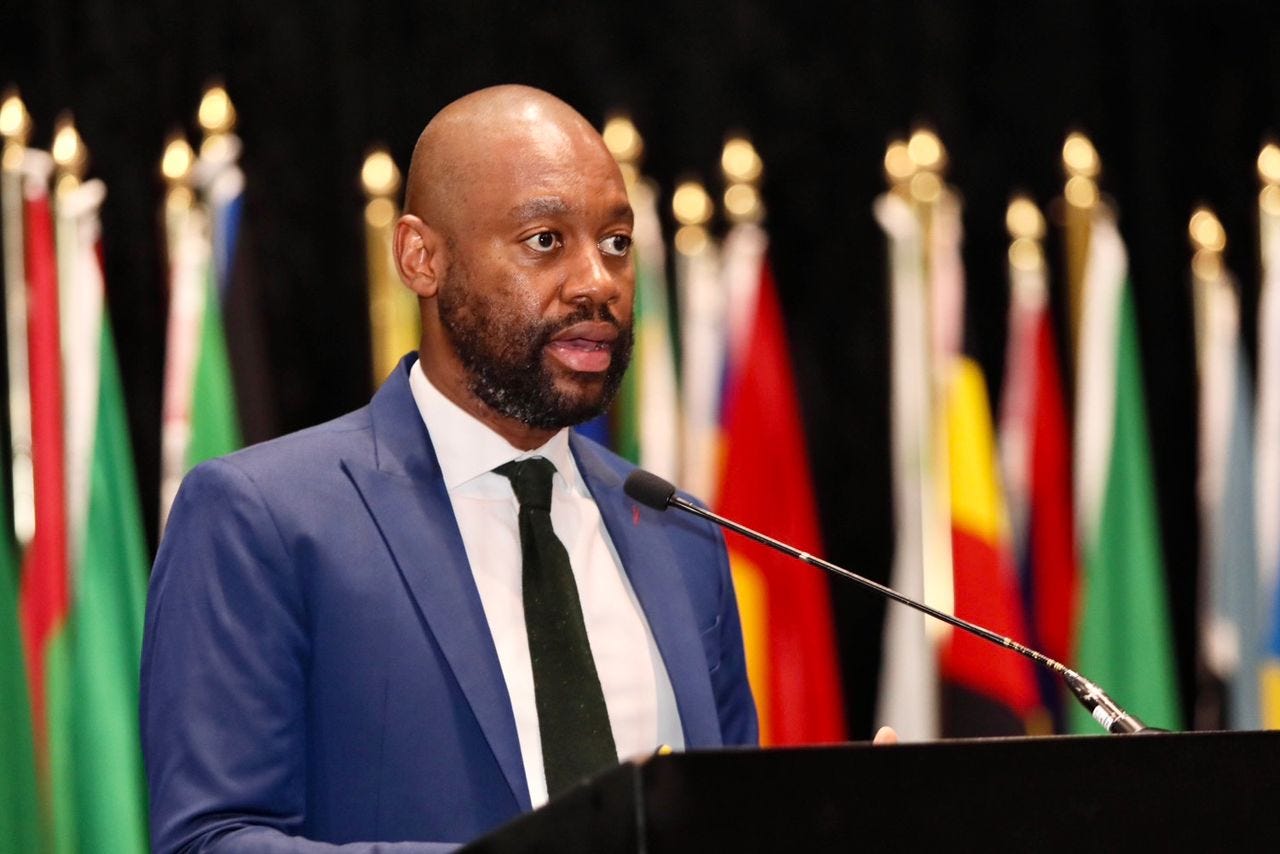ATAF's Shongwe Addresses Transparency as a Deterrent for IFFs at ATAF 2023 Annual Meetings
Mr. Thulani Shongwe's presentation shed light on the challenges and opportunities in this ongoing battle against illicit financial flows.
CAPE TOWN, South Africa- The African Tax Administration Forum's Manager of International Tax, Mr. Thulani Shongwe, examined transparency as a deterrent for illicit financial flows (IFFs) during its annual meetings on Tuesday, writes Winston Mwale.
In the third session of the day, Mr. Shongwe delivered a comprehensive presentation on the topic "FROM SHADOWS TO SPOTLIGHT: TRANSPARENCY AS A DETERRENT FOR IFFS."
The session focused on the key issues surrounding illicit financial flows (IFFs) and the role of transparency in combating them.
"Over the past few years, IFFs have been on the rise," said Thulani Shongwe, ATAF's manager of international tax.
He pointed to an estimated 90% increase between a 2011 UN report and a 2020 follow-up study.
Shongwe said new global tax rules could worsen aggressive avoidance and planning.
He also cited issues like limited information exchange agreements and low utilization of exchanges.
"The ultimate aim of exchange of information is to obtain information relevant for tax investigations, audits, and compliance," Shongwe said.
Mr. Shongwe highlighted several critical aspects at stake when addressing IFFs. He began by noting the alarming increase in IFFs over the past few years.
Comparing data from the High-Level Panel (HLP) Report and the United Nations Conference on Trade and Development (UNCTAD) Report, a close to 90% increase in IFFs was observed over a six-to-seven-year period.
The presentation also delved into the potential impact of new global tax rules, which could exacerbate aggressive tax planning and avoidance schemes.
Mr. Shongwe emphasised that low levels of signed mutual assistance agreements and the absence of beneficial ownership registers are critical issues in combating IFFs.
Additionally, exchange of information (EOI) requests remain relatively low, and the adoption of automatic exchange has been slow.
Regarding government coordination, Mr. Shongwe highlighted that government agencies have a Memoranda of Understanding and agreements in place to exchange information, but the process sometimes lacks proper coordination.
Mr. Shongwe presented key numbers to illustrate the use of EOI in combating IFFs, including that 80% of African countries have EOI units in place, five African countries have Automatic Exchange of Information (AEOI) units, and 97% of African countries have Competent Authorities in place. Additionally, African countries received 683 EOI requests while sending out 531 EOI requests.
The presentation outlined the principles of transparency for combating IFFs, including the need for legal frameworks for information exchanges, fully optimised EOI offices and delegated competent authorities, and the link between EOI and AEOI to IFF combat strategies in member countries.
Mr. Shongwe stressed the importance of the domestic exchange of information and risk profiling of the data.
One of the major focus areas was the Automatic Exchange of Information (AEOI) to combat IFFs.
Mr. Shongwe explained that AEOI aims to improve transparency by disclosing legal and beneficial ownership information, as well as accounting and banking information.
It also helps law enforcement authorities track, detect, and sanction the abuse of legal entities and arrangements for IFF activities.
In terms of international cooperation, Mr. Shongwe highlighted the scope of AEOI, which includes account information, sources of tax obligations, balances, interest, dividends, sales proceeds from financial assets, and the nature of investments.
The presentation discussed country-by-country reporting (CbCR) and the challenges associated with it.
The sharing of CbCR reports requires confidentiality requirements to be met, along with the establishment of a connection to a common transmission system and domestic legislation.
Challenges arise when many African countries lack entities meeting the €750 million revenue threshold, making it hard to convince national legislatures to enact CbCR legislation.
Mr. Shongwe outlined the system requirements for AEOI and the importance of enacting domestic legislation to facilitate AEOI.
He also discussed the opportunities for Africa in terms of legal frameworks and the reasons for the low uptake of AEOI, including complexity, the need for agreements, data protection requirements, and the financing of systems.
Inter-agency cooperation was another crucial aspect of the presentation, emphasising the need for collaboration between the government, financial institutions, immigration institutions, law enforcement institutions, information institutions, and other financial institutions.
Mr. Shongwe wrapped up by highlighting ATAF's support for countries in terms of EOI, with Transfer Pricing, Tax Audit, and General Compliance Improvement being the top areas where technical assistance is provided.
In conclusion, the presentation provided recommendations for combatting IFFs, emphasizing the importance of raising awareness, engaging stakeholders, and signing up to available legal frameworks such as the African Agreement on Mutual Assistance in Tax Matters (AMATM) and the Convention on Mutual Assistance in Tax Matters (MAAC).
Mr. Thulani Shongwe's presentation shed light on the challenges and opportunities in this ongoing battle against illicit financial flows.




